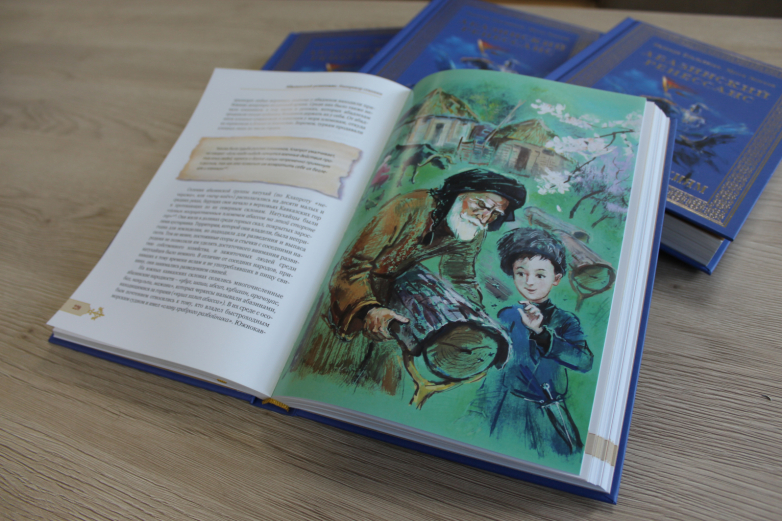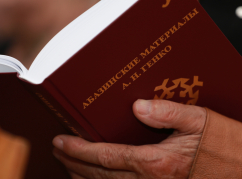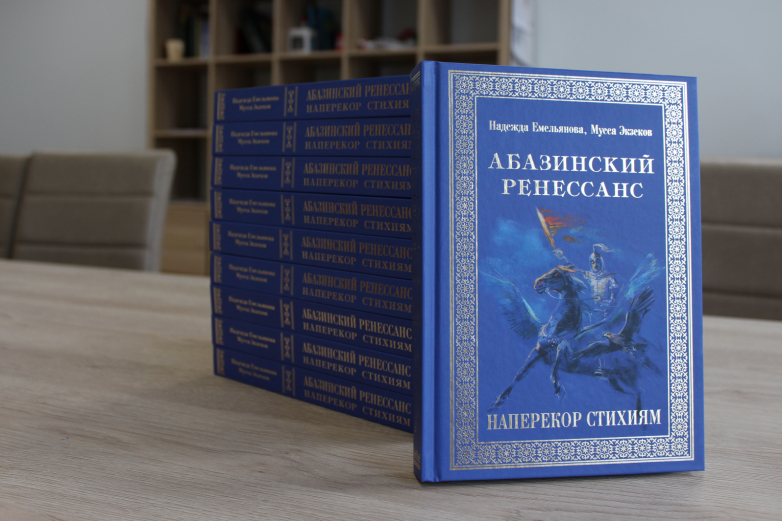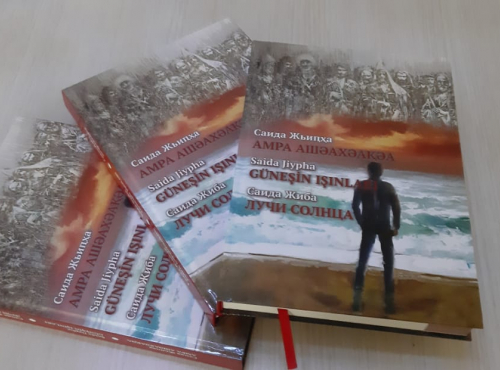Mussa Ekzekov, Chairman of the Supreme Council of the WAC, became a co-author of a historical study on the Abaza people “Abaza Renaissance”.
Said Bargandzhia
The first volume of a book on the history and culture of the Abaza people “Abaza Renaissance” was published in Moscow, authored by the Chairman of the Supreme Council of the WAC, Mussa Ekzekov and the famous Russian scientist Nadezhda Emelyanova.
Commenting on the publication of the book, Mussa Ekzekov recalled that the World Abaza Congress and the “Alashara” international association as a whole are doing great work to preserve national languages and cultural traditions, and said that the book “Abaza Renaissance” is “part of this global work.”
The Chairman of the Supreme Council of the WAC, explained that the main motivation for creating the book was the need to pass on to subsequent generations of Abaza and Abkhaz the history of their people, to encourage them to learn their own history, because the Abaza people have experienced many shocks over the millennia of their existence, which sometimes threatened the very existence of the ethnic group.
“I very much hope that this work will become the most important stone in the foundation of the development of an ethnic group. Everyone knows the truth: “People who do not know their past have no future,” and it is relevant as never before. The book is printed and will soon be available in stores. Among other things, this is a really interesting historical work, where anyone will find many fascinating stories. We [with the co-author] took another important step - we re-describe the history of the people from ancient times,” said Mussa Ekzekov.
The second author of the “Abaza Renaissance” is a Russian historian, orientalist and journalist Nadezhda Emelyanova. She noted that the book tells the story of Abaza in conjunction with the history of their closest kindred people, Abkhaz. According to the author, the book provides conclusions about the historical and cultural unity of these two peoples, reconstructed the past of the political, social and cultural space that was previously called the Abaza Land.
“The history of Abaza is the history of frequent wars and rare peaceful respites, the history of the defense of one’s land from enemies and the conclusion of peaceful alliances with neighbors. Through the prism of documentary sources, the Abaza people appear as the guardian of colossal energy and historical experience - they do not submit to troubles and do not break under the weight of adversity and in the most difficult times find internal forces for rebirth,” the author said.
She noted that a great help in collecting historically reliable art material - ornaments, household items, elements of a folk costume - was provided by the head of the “Alashara” Autonomous Non-Profit Organization in Cherkessk Murat Mukov.
Mussa Ekzekov, in turn, expressed gratitude to the entire team that worked on the publication. He noted the work of the editor Tatyana Filippova, who accompanied each chapter with precise epigraphs: quotes, folk sayings, proverbs.
According to the Chairman of the Supreme Council of the Congress, “the invaluable contribution” is made by the editor-in-chief of the publication, a world-famous scientist, ex-director of the Institute of Oriental Studies of the Russian Academy of Sciences, honorary academician of the Academy of Sciences of Abkhazia Rostislav Borisovich Rybakov (1938-2019).
Mussa Ekzekov separately noted the book illustrator Olga Grablevskaya, a well-known Petersburg artist and winner of the Lermontov-2014 contest. To create historically reliable paintings, according to the authors, the illustrator worked on significant factual material in museums and art funds in Russia.
“The author of illustrations for Lermontov’s works, she subtly feels the Caucasus. Her airy, light style gives a special character to the entire publication,” says Ekzekov.
The book “Abaza Renaissance” will appear on store shelves very soon. The publication is intended for a wide range of readers - everyone who is interested in the history and features of the Caucasus as a zone of intercivilizational and intercultural contacts. According to the creators, the book will be useful for politicians, public and state figures who are professionally involved in issues of cross national, interethnic relations.




to login or register.